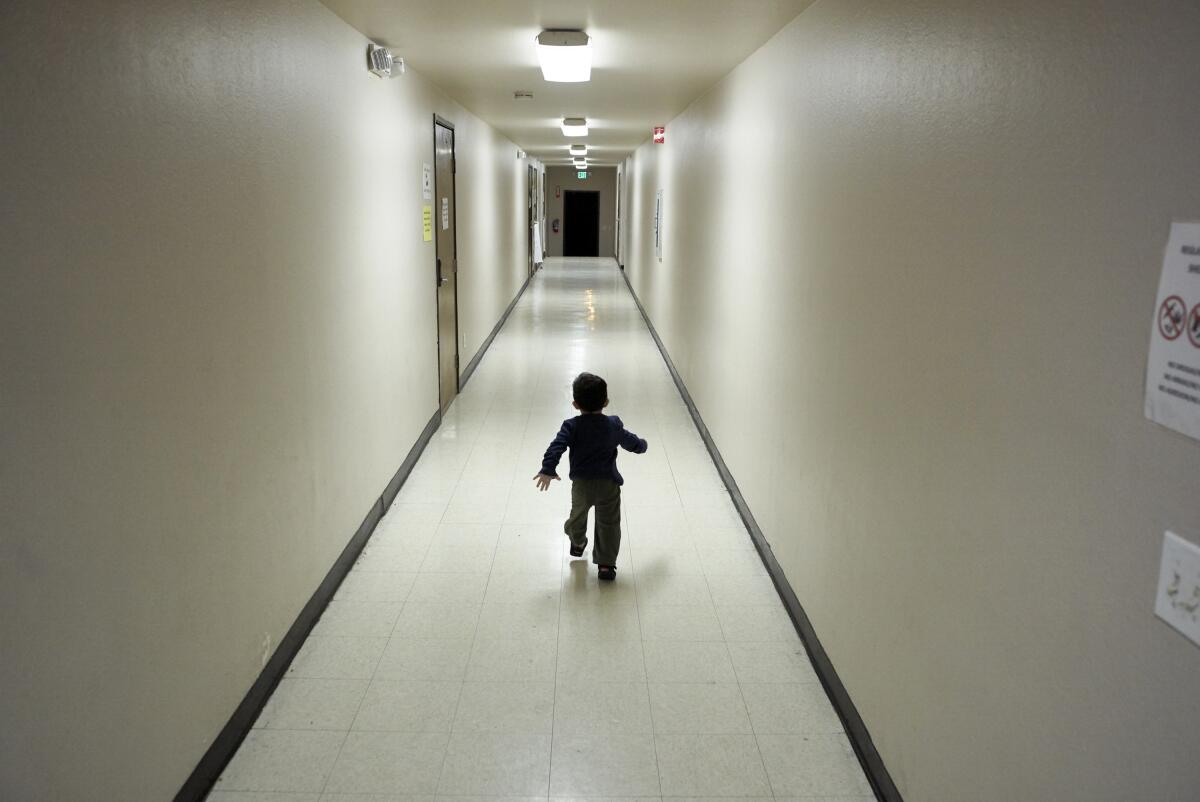Editorial: The right way to help migrant families separated under Trump

The Biden administration has slowly begun the process of bringing back parents stripped of their children and then deported during the Trump administration, a welcome if overdue effort by the government to atone for its grotesquely inhumane actions. It needs to do more.
The four families being reunited are among as many as 5,500 separated under the Trump administration’s “zero tolerance” policy for border-crossers, even though immigration law allows migrants to present themselves anywhere along a U.S. border and request asylum. Those who demonstrate a credible fear that returning home would expose them to likely persecution because of their race or ethnicity, political or religious beliefs, or membership in a particular social group (such as sexual orientation) are supposed to be allowed to stay and pursue an asylum claim.
To try to dissuade families from exercising that right to seek asylum, which is also enshrined in international laws and agreements, the Trump administration began charging the parents with crimes (usually misdemeanors related to crossing the border), shipping the children off to foster care or to stay with relatives already in the U.S., and deporting the adults. In June 2018, a federal judge ordered a halt to the practice, which President Trump — facing broad condemnation even from some of his conservative supporters — had also come to reject, but the damage was already done to thousands of families.
Congress has a chance to toughen up background checks for gun purchases. You can help nudge them along.
The American Civil Liberties Union and other civil and immigration rights groups, working under a court agreement, took up the task of trying to find the deported parents. Other investigations also discovered that the separations had begun earlier in the administration than initially reported. President Biden had vowed as a candidate to reunite the families, and Monday’s announcement marked the first step by his Family Reunification Task Force.
That inter-agency group is expected to release a report June 2 on what it is doing and what will come next. But the government owes these families the opportunity to be reunited in the U.S. under any of several possible regimens, including granting asylum requests where warranted, offering humanitarian parole or granting them legal status under U visas, given to migrants who are cooperating in criminal investigations or who have been the victims of crimes. And while federal kidnapping statutes may not apply to the government’s actions here, basic human decency demands that the victims and their parents be granted relief, including permission to stay and assistance in resettling.
And no, that’s not a call to open the borders, as immigration hard-liners might complain. The number of families involved is minuscule compared to the flow of immigrants — both sanctioned and unsanctioned — who move to the U.S. each year, whose ranks often exceed 1 million. Nor is it a reward for people who have entered the U.S. illegally.
It is the government acknowledging that its actions harmed these people — the trauma of separations on children is significant, according to psychologists, not to mention the emotional ordeal for parents — and taking positive steps to mitigate the damage where it can.
For some, we note, the worst of the damages cannot be mitigated, as in the case of the Honduran father facing deportation who killed himself in a Texas jail after being separated from his family. Or for the scores of parents who agreed to leave their children behind, the ultimate sacrifice for any family determined to give their children a better future.
Trials of guaranteed income programs in L.A. could show whether giving poor people cash can actually reduce poverty. Gathering data will be crucial.
There are no easy solutions to the nation’s ongoing struggles with immigration or with the ebb and flow of desperate people fleeing danger or misery in their hometowns at enormous risk. Witness the ones who died off the coast of San Diego on Sunday morning as a smuggler’s boat overturned, or the migrant bodies routinely found in the desert. It’s the same desperation that leads many parents, forced to wait out asylum applications in dangerous border camps — a practice still followed by the Biden administration — to slip their children across the border solo in hopes of joining them later.
Our legal immigration system is in shambles, and while Biden can nibble around the edges with new regulations, deferred deportations and cash-driven diplomacy to stabilize the source countries, this is Congress’ problem to fix.
In the meantime, the politicization of immigration has made matters worse. In a sense, Congress’ failure is our national failure to settle on an approach, set priorities and recognize that even if some people arriving at the border do not have a legal right to immigrate, they at least must be treated humanely and respectfully as the laws are applied. Pulling children from their parents’ arms is the exact opposite of that.
More to Read
A cure for the common opinion
Get thought-provoking perspectives with our weekly newsletter.
You may occasionally receive promotional content from the Los Angeles Times.












